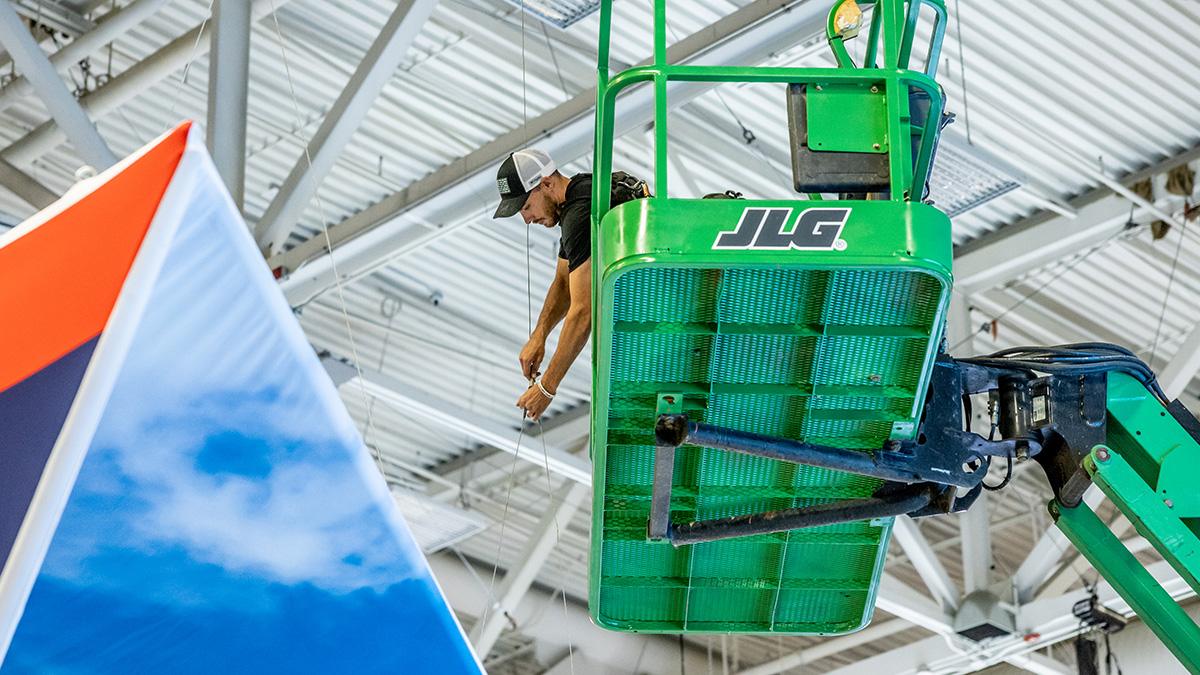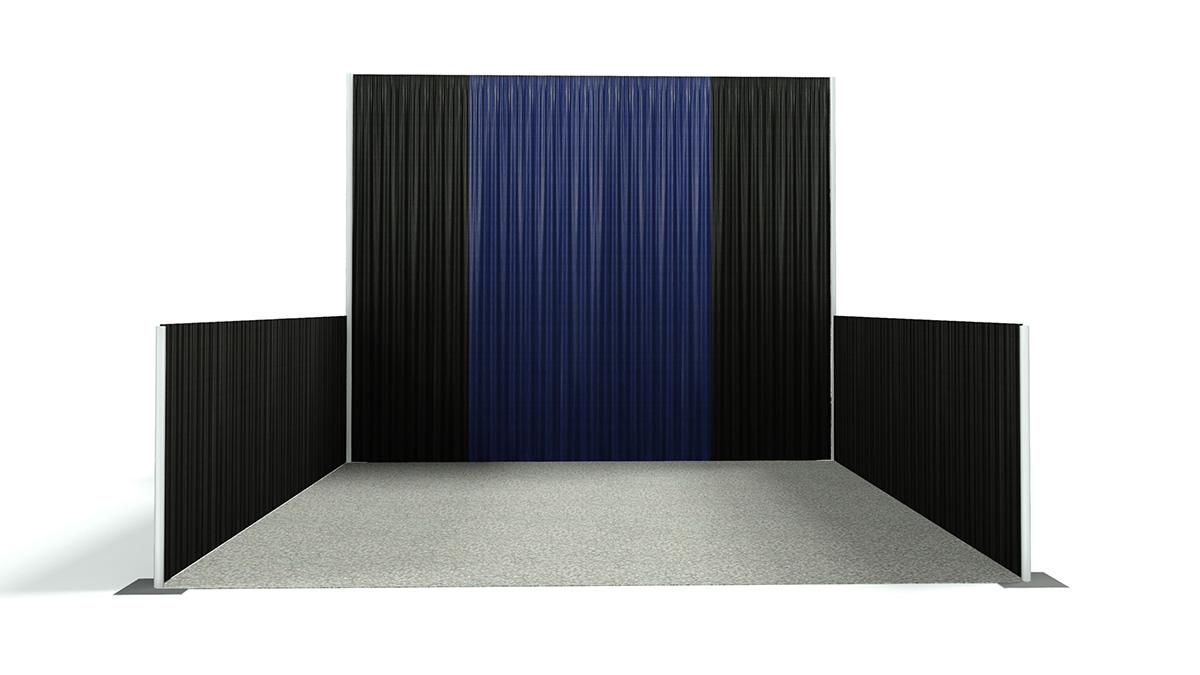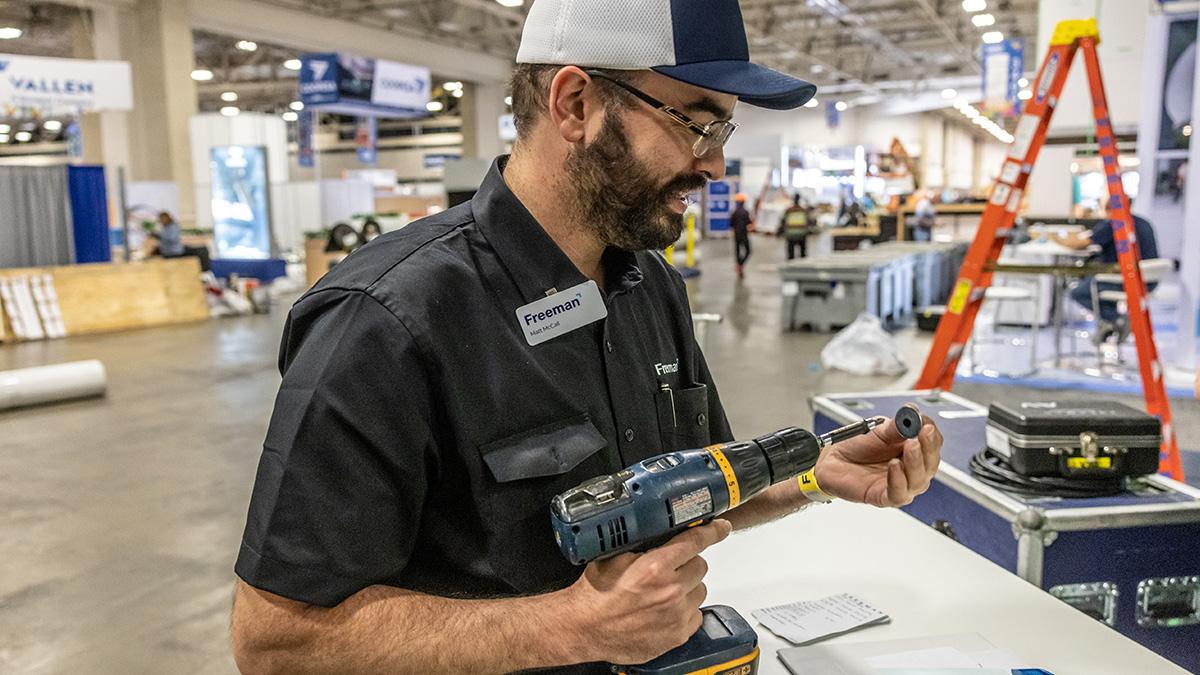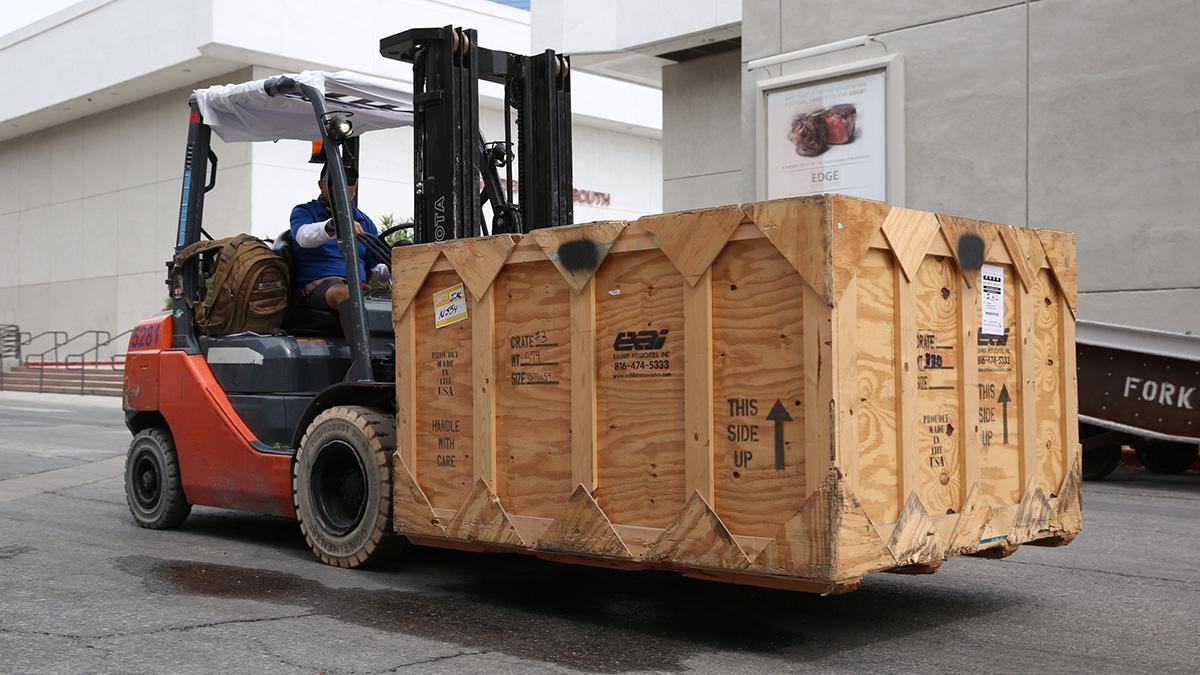Quick Guide: The International Exhibitor
Get ready to exhibit in the United States
Exhibiting in the United States (U.S.) is a great way to reach audiences and give your brand an international boost. Keeping in mind there are some key differences exhibiting in the States.
Check out our quick guide that will help you prepare to exhibit, answer common questions, and get ready for a successful international exhibiting experience

General Service Contractor / Official Services Contractor
The General Services Contractor (GSC), also known as a General Contractor (GC) or Official General Contractor (OGC), is contracted by the show organizer to handle oversight of the physical setup and teardown of the exhibition. The GSC may provide services such as:
- Generating the Exhibitor Services Manual (also known as Exhibitor Kit)
- Installation and dismantling of exhibit booths
- Oversight of labor
- Material handling and loading dock management
- Getting the venue event-ready (signs, banners, structures)
- Managing freight and storage for move in and move out
- Rental of exhibits, carpet, furnishings, etc.
Some of the GSC responsibilities, such as material handling, cleaning, and rigging are provided on an exclusive basis — meaning only the GSC can perform these services for exhibitors.
Furniture, lighting, flooring, and audio-visual solutions are available for rent individually, as a bundle, or as part of booth rentals. These items are typically ordered through the GSC or a specialty contractor.
Exhibitors should order these items in advance of the show.
To ensure the best pricing, you will want to note deadlines and what products, services, and conveniences are provided with your booth space.
Please note that the venue may also provide exclusive services, such as electrical, food and beverage, rigging, etc. All of the offerings and exclusivities are highlighted in the Exhibitor Services Manual (ESM), including the rules and regulations of the specific venue and exhibition.
Exhibitor Services Manual/Exhibitor Kit
The ESM is developed by the GSC for the exhibition. It contains general event information, labor and service order forms, rules and regulations, and other information pertinent to an exhibitor’s participation in an exhibition.
Booth construction

In the U.S., most small exhibition booths are provided with pipe and drape to designate each 10 ft x 10 ft space (3 m x 3 m). This will consist of metal pipe frames and drapery walls, and is different from what is offered as hard-wall shell schemes more commonly provided outside the U.S.
You will be able to choose how you further design your booth space — that can include:
- Using a simplified online process to order carpet, furnishings, etc.
- Shipping your own exhibit to the U.S.
- Contracting with an exhibition stand builder or Exhibitor Appointed Contractor (EAC)
Be sure you are up to date on any requirements for shipping, venue regulations, added expenses, and extended timelines due to customs processes in the U.S.
Labor unions

In the U.S., it is most common that unions perform the majority of the tasks in facilities.
A labor union is a group of employees in a certain trade, industry, or corporation that organize to improve their salary, benefits, and working conditions2.
Every venue has different union rules and regulations, so it is important to understand the labor union rules and regulations. In your show’s ESM/Exhibitor Kit, you’ll find detailed information about the labor rules and regulations.
If you have a simple exhibit that you or your employees would like to install, it may not require union labor. However, if you have a more complex build, union labor will need to be hired through the GSC, an approved agency, or EAC (Exhibitor Appointed Contractor).
You’ll want to pay attention to the difference in labor rates, which are based on the date and time of when you require labor. Overtime (more than eight hours per day or hours outside of set labor union working hours), Sunday hours, and holiday rates can quickly get expensive. Watch the calendar (for holidays and weekends) and plan ahead to manage costs.
If you are exhibiting in multiple cities, labor rates can vary from venue to venue.
Material handling and shipping
Shipping is the transportation of your exhibit properties from your location to the event. There are two general shipping options:
- Ship to a warehouse (known as an advanced warehouse) up to one month before the show’s move-in date
- Ship directly to the show site on the move-in date(s) provided

Material handling is handling the exhibit freight once it arrives at the advanced warehouse or show site. In the U.S., the GSC is the exclusive provider of material handling.
In addition, the GSC brings all material from the advanced receiving warehouse to the booth/stand location prior to the exhibitor move-in date.
You can find these dates in the Exhibitor Services Kit.
All materials shipped to the warehouse or show site must have an in-bound Bill of Lading (BOL) with certified weight tickets. The weight of the material determines the cost to perform all material handling functions. moving the freight from the advanced warehouse to the exhibition venue. This can be a strong cost driver if not planned well and in advance.
Learn more about material handling and shipping.
Additional exclusive services
In some venues, there may be exclusivity contracts for services such as cleaning, rigging, electrical, internet, food and beverage, catering, hotel, etc. This means exhibitors must order these services through the Exhibitor Services Manual, which specifies approved vendors.
In this case, exhibitors will need to obtain an individual proposal, for each service, from each approved vendor — and will receive separate invoices. More detailed Information is typically found in your Exhibitor Kit or on the GSC online ordering platform.
When Freeman is the GSC, you can search here to find your show, for more information on each service.
You can also decide to work with an EAC, who may be able to order all services on your behalf and will be invoiced directly, so you will receive one invoice from the EAC for all services.
Payment process
Please note how the payment process is handled for exhibiting at shows in the U.S.
- When products and services are ordered through the GSC, a single, overall invoice for all products and services is provided
- For specialty services not provided by the GSC, invoices are provided by the service provider(s)
- Services ordered on-site require credit card payment at the time of order
Additional payment options may be available. Contact your GSC for more information.
Start planning for your exhibit today
With the right approach, you’ll enjoy a smooth experience that allows you to focus on what really matters: growing your brand and expanding your market.
An experienced, local, exhibit partner such as Freeman can help you navigate exhibiting in the U.S., so you can avoid frustrating (and sometimes costly) complications. Our teams provide hands-on support, ensuring your exhibitor passport is stamped for a successful show!
Reach out and request a consultation